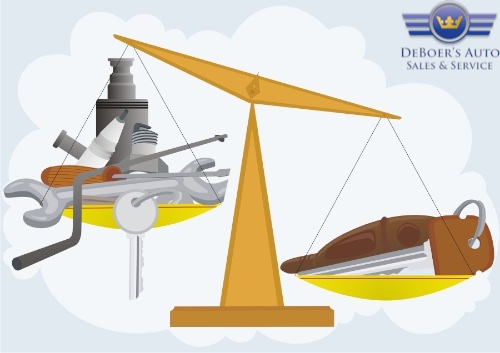Shopping for a car can be a fun and exciting experience, but without careful planning, you could end up with buyer’s remorse. Emotional buying is the key car shopping behavior that guarantees failure in choosing the car you need. Here are some of the ways this behavior can crash your good intentions and tips on how you can realign your priorities and curb your emotional thinking.

How Emotion Plays a Role in Car Shopping
Our emotions often enter into our purchases without realizing it. For example, you have your eye on that candy apple red convertible and say to yourself “someday,” without considering your budget or how many miles to the gallon the car gets. Here are some of the ways emotions can play a major role in shopping for a car:
- You base a car choice on a model and color your neighbors and coworkers will envy.
- You choose a car based on non-essential custom features, such as a moon roof, cool color or state-of-the-art stereo, instead of its practical purpose.
- You get distracted by specialty features that “sound” great, such as high-tech brakes, without asking the important questions, such as “Will it keep my family safe?”
- Your old car stopped working and you have a sudden need to buy a replacement.
- If you are expecting an upcoming change in your family or finances or have an upcoming birthday, your emotions may be working in overdrive.
Consequences of Emotional Buying
Emotional purchasing is the #1 car-buying mistake facing car shoppers today. But what can happen if you buy based on emotion? Here are some of the possibilities:
- Spending thousands of dollars more than you planned.
- Purchasing a car you won't be happy with in the long run.
- Choosing a car that doesn’t meet your mileage or reliability needs.
- Forgetting to do research on the car, resulting in limiting yourself to a single model.
- Neglecting to take the car for a test drive.
- Buyer’s remorse.

Solutions to Keep You on Track
To avoid buyer’s remorse, car buying should be based on research, not emotions. Keep on course by putting emotion in the backseat and focus on your main purpose for buying the car. Here are some helpful tips to ensure you stay on track:
- Decide on your budget and stick to it.
- Make a list of what the main goals of this car are for you, such as fuel economy or providing transportation for your family.
- Do your homework on your model choices and ask the dealer questions related to your research.
- Look for the car's safety record, reviews, ratings and dependability.
- Compare different models in your price range.
- Be open to other models that might fit what you need.
- Bring a friend with you for moral support and to help you stay focused so you don’t become emotionally sidetracked.
- Take the time for a test drive to see how the car handles in town, as well as on the highway.








